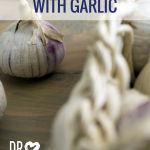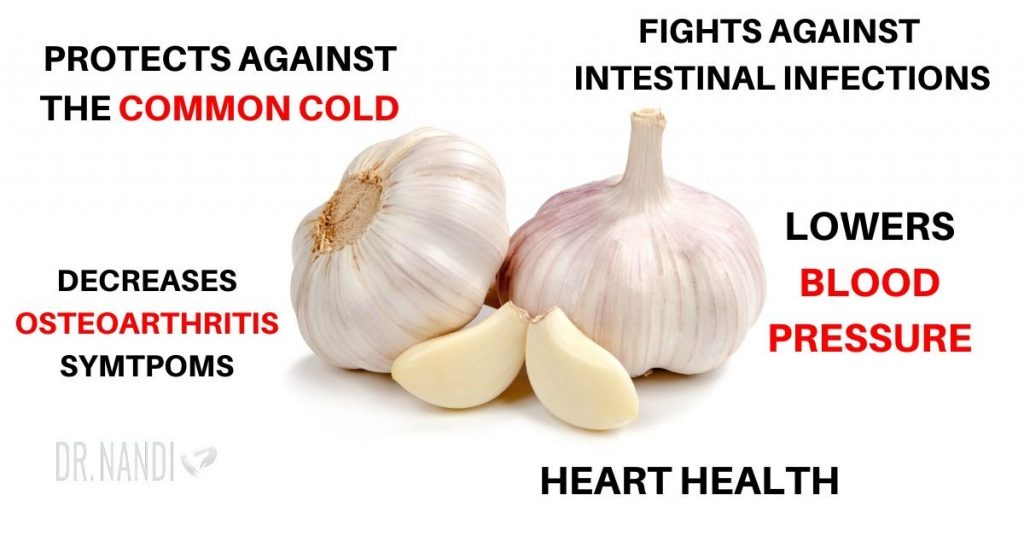
Garlic – we all know its pungent odor and its ability to make our breath a bit fragrant, but did you know about all the great health benefits it has for our bodies?
Garlic is believed to activate the production of the endothelium-derived relaxation factor due to the herb’s high amount of sulfur-rich polysulfides. This leads to smooth muscle relaxation and the widening of blood vessels. This widening can help to lower blood pressure. Daily supplementation may help keep your blood pressure lower without the smell associated with raw or fresh garlic.
The journal Advances In Therapy published a study that suggests that garlic’s allicin can serve as a health aid during times of illness.In the research paper, the findings explained that a daily garlic supplement can reduce the number of colds by 63 percent compared to not taking supplements. Moreover, the average length of cold symptoms was also reduced by 70 percent, from five days in the control group to 1.5 days in garlic supplement group. These findings suggest that the garlic supplement has a protective effect against the common cold.
A paper was published in the Journal of Antimicrobial Chemotherapy regarding diallyl sulfide, a compound in garlic that is roughly 100 times more powerful than two powerful antibiotics used to fight the Campylobacter bacterium. The Campylobacter bacterium is one of the most common causes of intestinal infections.
A long-term study involving more than 1,000 healthy female twins found that those whose dietary habits included plenty of fruit and vegetables, “particularly alliums such as garlic”, had fewer signs of early osteoarthritis in the hip joint. The authors of the study are excited about the potential for using compounds that exist in garlic to develop treatments for the condition of osteoarthritis.
Even more great news has been found with garlic and the heart. Doctors at Emory University have discovered that diallyl trisulfide can help protect the heart during surgery and after a heart attack. They are researching the possibility that the trisulfides can be used as a treatment for heart failure. In animal experiments using laboratory mice, the team found that after a heart attack the mice that had received diallyl sulfide had 61% less heart damage in an area of risk compared to the untreated mice.

Garlic has also been found to be effective in helping diabetics and cardiomyopathy. Cardiomyopathy is a leading cause of death among diabetes patients. It is a chronic disease of the myocardium (heart muscle), which is abnormally thickened, enlarged and/or stiffened. Currently, animal testing has found that garlic oil possesses significant potential for protecting hearts from diabetes-induced cardiomyopathy but human testing is needed before these claims can be verified.








